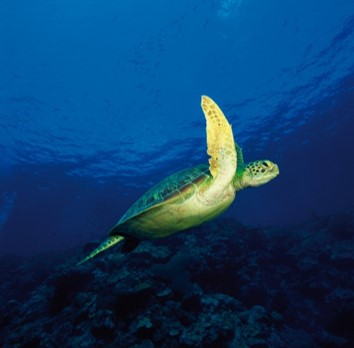Home ||
Tanker Safety ||
Container Ship Handling ||
Commercial Management ||
EMS
Environmental Management System - Vessel General Permit (VGP)
The sea covers 70% of the Earth's surface. It supplies a substantial proportion of the food we eat and plays an integral part in the welfare of the planet. Preventing pollution of the sea is an essential responsibility of all mariners and the shipping industry.
All personnel associated with shipping should:
- receive training on the impact of pollution and the means of reducing and preventing it
- have a role in protecting the environmentby following procedures
- ensure they take positive action to prevent pollution through good seamanship.
Every shipping company must have an environmental policy in place, and every ship must implement environmental procedures. This course has been designed to:
- raise awareness of that environmental policy
- consider the reasons why it has been implemented and the importance of compliance.

An environmental policy must take account of all conventions applicable to marine transport, in particular:
the International Convention for the Prevention of Pollution from Ships (MARPOL 73/78 and its Annexes), Ballast Water Management Requirements, Anti-Fouling Paints, industry standards, and port authority regulations.
The US Environmental Protection Agency (EPA) has implemented regulations for
discharges incidental to the regular operation of vessels. Applicable vessels have been automatically
authorized to discharge following the Vessel General Permit (VGP) since February 6, 2009.
Documentation and recordkeeping requirements have been effective since February 19, 2009.
It is also necessary to submit a Notice of Intent (NOI) before September 19, 2009. The purpose of
the NOI is for the vessel's operator to certify a vessel has implemented sufficient procedures to
ensure compliance with the VGP inspection, monitoring, and documentation requirements.
Vessels trading to the USA are reminded:
- Please ensure that all staff is aware of the VGP and requirements as appropriate for their
position on board.
- Record keeping in the VGP logbook should be well established. (Duplicate reporting is not
required — VGP Logbook or other existing logbook is satisfactory)
- A copy of the letter confirming NOI submission and Permit Tracking Number must be on board.
- Details of certifying official must be entered in logbook as per confirmation letter.
- Vessels that have been in dry-dock after February 6, 2009, must have a dry-dock inspection report on
board. (VGP 4.1.4)
- Records must be maintained accurately. As with all log and record books, incorrect or false
entries can result in criminal penalties.
- Training and familiarisation must have been completed and recorded in Section 10 of the VGP
record book.
- The ‘Ship’s Watch’ posters are displayed at suitable points around the vessel.
The Environmental Management System (EMS) is designed to ensure compliance with industry best practices relating to environmental standards.
The purpose of EMS
- Identifying any significant information on environmental aspects
- Training requirements pertaining to EMS
- Monitoring and measurement of the critical characteristics of operations and activities that can have a significant impact on the environment
- Investigation of non-conformances and their corrective and preventive actions
- Reporting all of the above matters to the Environmental Manager
Related articles
Environmental aspects
Environmental management program
Environmental protection-operational control procedure for ships
Environmental protection- Communication procedures for ships
Environmental protection- operational control for shore office
Environmental protection-training and awareness for ship crew
Environmental training for shore staff

Other info pages !
Ships Charterparties Related terms & guideline
Stevedores injury How to prevent injury onboard
Environmental issues How to prevent marine pollution
Cargo & Ballast Handling Safety Guideline
Reefer cargo handling Troubleshoot and countermeasures
DG cargo handling Procedures & Guidelines
Safety in engine room Standard procedures
Questions from user and feedback Read our knowledgebase
Home page

ShipsBusiness.com is merely an informational site about various aspects of ships operation,maintenance procedure,
prevention of pollution and many safety guideline. The procedures explained here are only indicative,
not exhaustive in nature and one must always be guided by practices of good seamanship.
Site Use and Privacy - Read our privacy policy and site use information.
//Home //Terms and conditions of use
Copyright © shipsbusiness.com All rights reserved.



